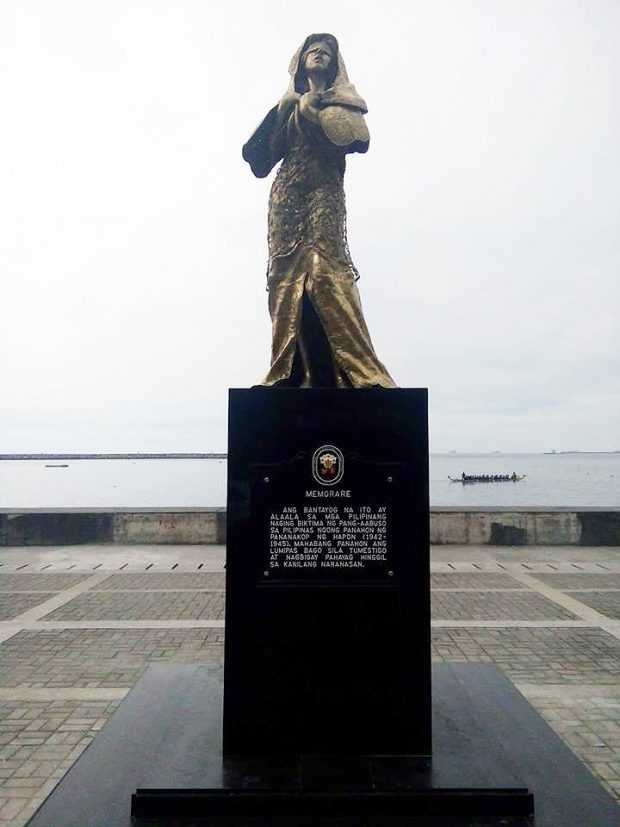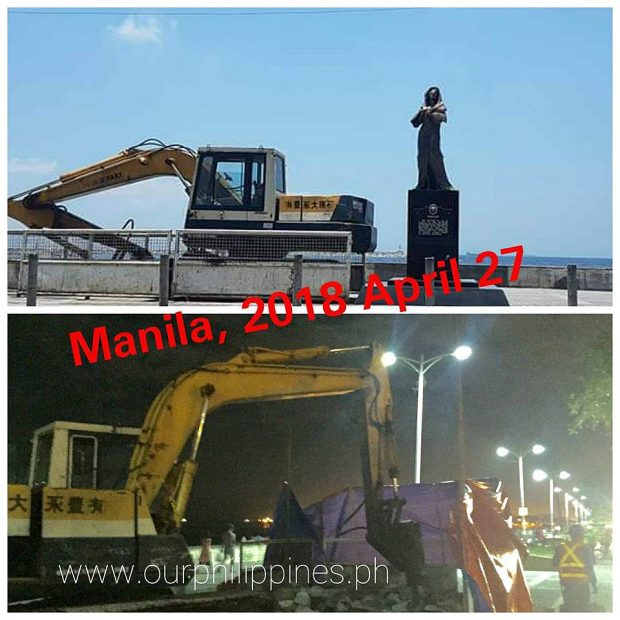UN slams PH gov’t for failing to protect ‘comfort women’
The Philippines failed to redress continuous discrimination and suffering of sexual slavery victims perpetrated by Imperial Japanese Army during World War II, the United Nations (UN) women’s rights committee reported on international women’s day, March 8.
The Committee on the Elimination of Discrimination against Women (CEDAW) based in Geneva, Switzerland in a decision said the country’s failure to fight for justice for the victims had essentially resulted in ongoing discrimination against them that continues to this day, nearly seven decades since the war ended in 1945.
CEDAW issued the decision after examining a complaint filed by 24 Filipina nationals, commonly known as “comfort women”, asking the Philippine government to support their claims against Japan for reparations for their suffering from sexual slavery in the hands of the Japanese Imperial Army.
CEDAW member Marion Bethel said the decision is a symbolic moment of victory for the victims who were previously silenced, ignored, written off and erased from history in the Philippines.
“The committee’s views pave the way for restoring their dignity, integrity, reputation and honour,” Bethel said.
The complainants, members of Malaya Lolas (Free Grandmothers), an organization of sexual slavery survivors and supporters, testified that on November 23, 1944, they were taken to an old mansion called “Bahay na Pula” (Red House) in San Ildefonso in Bulacan province where there were repeatedly raped, tortured and subjected to inhumane conditions for up to three weeks.
“They have since then endured long-term physical, psychological, social and economic consequences, including physical injuries, post-traumatic stress, permanent damage to their reproductive capacity and harm to their social relationships in their community, marriage and work,” CEDAW said in a news release.
They asserted that they had consistently raised their claims at the domestic level, requesting that the Government of the Philippines espouse their claims and their right to reparations against the Government of Japan, the committee reported.
Their repeated efforts, however, were dismissed by authorities, with their last action turned down by the Supreme Court in 2014. The Philippine government has always maintained that it is not in a position to claim compensation from Japan after ratifying the Treaty of Peace with Japan in 1956, it added.
In 2019, the victims then brought their case to the committee, seeking to establish the responsibility of the State party to fulfill its commitments under the Convention on the Elimination of All Forms of Discrimination against Women in supporting the non-discrimination of women and girls on its territory.
The committee noted that the Philippines had waived its right to compensation by signing the Treaty of Peace with Japan.
It observed that the Philippine Commission on Women had not addressed the institutionalized system of wartime sexual slavery, its consequences for victims and survivors or their protection needs.
In contrast, Philippine war veterans, who are mostly men, are entitled to special and esteemed treatment from the Government, such as educational benefits, health-care benefits, old age, disability and death pensions.
The comfort women’s case is one of continuous discrimination, CEDAW asserted.
Given the extreme severity of gender-based violence suffered by the victims, and the continuing discrimination against them regarding restitution, compensation and rehabilitation, CEDAW concluded that the Philippines had breached its obligations under the Convention.
In particular, the Committee found that the State party had failed to adopt appropriate legislative and other measures to prohibit all discrimination against women and protect women’s rights on an equal basis with men.
The Committee requested that the Philippines provide the victims full reparation, including material compensation and an official apology for the continuing discrimination.
“This case demonstrates that minimizing or ignoring sexual violence against women and girls in war and conflict situations is, indeed, another egregious form of violation of women’s rights. We hope that the committee’s decision serves to restore human dignity for all of the victims, both deceased and living,” Bethel said. # (Raymund B. Villanueva)


